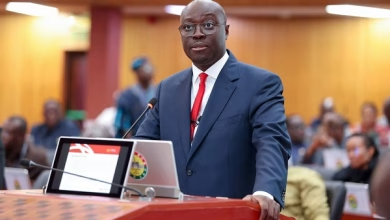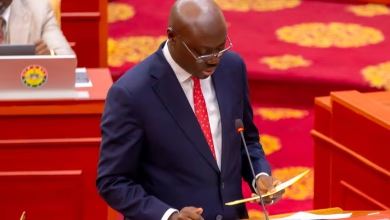“Ghana Atomic Energy Commission Members Embark on Nuclear Study Tour in Japan”

- Ghanaian delegation visits Japan to study nuclear energy.
- Delegation learns about security measures in Japanese nuclear power plants.
- Japan revives 12 nuclear reactors after Fukushima disaster.
- Ghana aims to establish first nuclear power plant by 2030.
Ghana is on a mission to establish its first nuclear power plant by 2030, and to achieve this, the Nuclear Power Institute (NPI), Ghana Atomic Energy Agency (GAEC), and international partners are working tirelessly to expose nuclear experts, the media, and other stakeholders to best practices in countries advanced in the technology.
One such country is Japan, which has been assisting Ghana in its journey to establish its first nuclear energy plant. Japan had its first nuclear power plant, Tokai Power Station, in 1966, and has since then been a leader in nuclear technology.
A ten-member team from Ghana, with assistance from GAEC, the International Atomic Energy Agency (IAEA), and the Japan Atomic Industrial Forum (JAIF) International Cooperation Center, recently embarked on a study tour to some nuclear institutions in Japan.
The study tour exposed the team to the benefits of nuclear technology, security measures being put in place in Japan after the Fukushima Nuclear disaster in 2011, and precautionary measures to prevent reoccurrence.
The delegation, headed by Ernest Owusu-Afari, a Board Member of NPI, visited several nuclear institutions in Japan, including the Tsuruga Nuclear Power Station Unit 1, which is undergoing decommissioning.
At the Tsuruga Nuclear Power Station 1, the team went through tight security and safety protocols to see the reactor and how the spent fuel is being stored. They also visited the Mihama Nuclear Emergency Assistance Center (M-NEACE), the Nuclear Power Training Center, and the Fukui Atomic Information Center.
The team was impressed with the security consciousness of the nuclear power operators and regulatory authorities in Japan. Ernest Owusu-Afari acknowledged the apprehension and concerns of many Ghanaians about nuclear but emphasized the importance of utilizing the technology.
He said, “The power of the atom is a gift from God to humanity and should be utilized like other natural resources. Ghanaians will be shooting themselves in the foot if we don’t make the effort to utilize the technology.”
The General Manager of JICC, JAIF International Cooperation Center, Toshihiro Yamakawa, led the delegation to all the visited facilities and shared Japan’s experience in nuclear energy. He said Japan has revived 12 of the 54 nuclear reactors that were shut down following the Fukushima disaster. Despite the devastation caused by the Fukushima disaster, Japan’s energy policy is to increase its nuclear power capacity to 24 in the next five years






